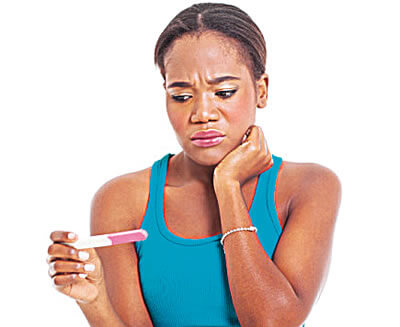Why Early and Adequate Testing Minimizes Pain and Unexplained Cases of Infertility - Study
IN a new study, experts say that early diagnosis of diseases such as hypertension, fibroids, diabetes and hepatitis in infertile or subfertile women can minimize pain, reduce the cost of hospitalization and minimize the number of patients with unexplained infertility.< /p>
The study observed a significant association between infertility and hepatitis and between infertility and fibroids in women of reproductive age with primary and secondary infertility at a tertiary health care facility in Lagos.
Primary infertility occurs when a person has never had a pregnancy, and secondary infertility occurs when at least one previous pregnancy has been achieved.
The researchers said gynecologists and fertility experts in sub-Saharan Africa should screen for these conditions in every patient who presents with infertility, after ruling out the male factor as contributing to female infertility.
According to them, female infertility may not occur on its own, but may be associated with other health problems. Overlooking these health conditions when clinically evaluating women with primary or secondary infertility when seeking fertility treatment may not bring the desired results of a successful pregnancy.
Researchers had set out to determine the frequency and relative risks of certain chronic diseases such as hypertension and diabetes, infectious diseases such as hepatitis, and other gynecological diseases such as fibroids and endometriosis in women with primary and secondary infertility taking into account their age groups and body mass index.
The overall prevalence of hypertension, diabetes, cancer, and asthma among all patients was 9.6%, 6.8%, 0.8%, and 0.4%, respectively. Among infectious diseases, hepatitis B occurred most frequently at 19.1%, more in women with secondary infertility (28.0%) than primary infertility (13.9%). It was in the September issue of Pregnancy & Child Birth magazine.
The most common gynecological diseases among these women were fibroids (32.7%) and endometriosis (11.2%). There was significant variation in the distribution of polycystic ovary syndrome (PCOS) with age, overweight, and intrauterine adhesion in people with primary infertility, but not secondary infertility.
According to the study, hepatitis screening should be integrated and actively pursued as one of the preparations for the examination of female infertility in sub-Saharan Africa. In addition, a National Hepatitis Survey in Nigeria should be undertaken and reviewed every four years.
They concluded that women with a history of primary infertility are at greater risk of diabetes, endometriosis and PCOS than those with a secondary infection. Conversely, people with secondary infertility are at greater risk of hypertension, hepatitis, fibroids and adenomyosis.
Diabetes is known to impact female and male fertility by causing hormonal disruptions resulting in delayed or failed implantation and/or conception, as well as poor sperm quality and embryos and damaged genetic mutations and deletions.
Hepatitis B virus (HBV) is also known to negatively affect fertility. In women it is associated with an increased risk of tubal and uterine infertility and in men it has been associated with an increased risk of tubal infertility in their partner.

IN a new study, experts say that early diagnosis of diseases such as hypertension, fibroids, diabetes and hepatitis in infertile or subfertile women can minimize pain, reduce the cost of hospitalization and minimize the number of patients with unexplained infertility.< /p>
The study observed a significant association between infertility and hepatitis and between infertility and fibroids in women of reproductive age with primary and secondary infertility at a tertiary health care facility in Lagos.
Primary infertility occurs when a person has never had a pregnancy, and secondary infertility occurs when at least one previous pregnancy has been achieved.
The researchers said gynecologists and fertility experts in sub-Saharan Africa should screen for these conditions in every patient who presents with infertility, after ruling out the male factor as contributing to female infertility.
According to them, female infertility may not occur on its own, but may be associated with other health problems. Overlooking these health conditions when clinically evaluating women with primary or secondary infertility when seeking fertility treatment may not bring the desired results of a successful pregnancy.
Researchers had set out to determine the frequency and relative risks of certain chronic diseases such as hypertension and diabetes, infectious diseases such as hepatitis, and other gynecological diseases such as fibroids and endometriosis in women with primary and secondary infertility taking into account their age groups and body mass index.
The overall prevalence of hypertension, diabetes, cancer, and asthma among all patients was 9.6%, 6.8%, 0.8%, and 0.4%, respectively. Among infectious diseases, hepatitis B occurred most frequently at 19.1%, more in women with secondary infertility (28.0%) than primary infertility (13.9%). It was in the September issue of Pregnancy & Child Birth magazine.
The most common gynecological diseases among these women were fibroids (32.7%) and endometriosis (11.2%). There was significant variation in the distribution of polycystic ovary syndrome (PCOS) with age, overweight, and intrauterine adhesion in people with primary infertility, but not secondary infertility.
According to the study, hepatitis screening should be integrated and actively pursued as one of the preparations for the examination of female infertility in sub-Saharan Africa. In addition, a National Hepatitis Survey in Nigeria should be undertaken and reviewed every four years.
They concluded that women with a history of primary infertility are at greater risk of diabetes, endometriosis and PCOS than those with a secondary infection. Conversely, people with secondary infertility are at greater risk of hypertension, hepatitis, fibroids and adenomyosis.
Diabetes is known to impact female and male fertility by causing hormonal disruptions resulting in delayed or failed implantation and/or conception, as well as poor sperm quality and embryos and damaged genetic mutations and deletions.
Hepatitis B virus (HBV) is also known to negatively affect fertility. In women it is associated with an increased risk of tubal and uterine infertility and in men it has been associated with an increased risk of tubal infertility in their partner.
What's Your Reaction?






















